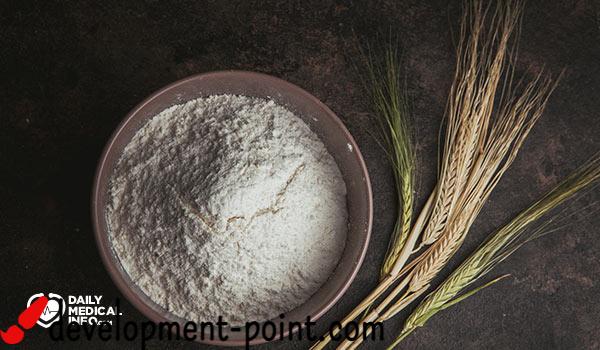Intestinal influenza, its symptoms, causes, treatment and prevention
Gastroenteritis is one of the most common and widespread diseases among adults and children, especially for those who are accustomed to eating prepared foods outside the home. Learn about the symptoms of gastroenteritis Its causes, complications, and methods of treatment and prevention are presented in this article.
Definition of gastroenteritis
Its common name, too Stomach flu or Stomach cold (Stomach flu) but its scientific name is Inflammation of the stomach and intestines (Inflammation of the stomach and intestines), which is an inflammation of the lining of the intestine due to a viral or bacterial infection or due to some type of disease Intestinal parasitesThis disease is often spread by eating contaminated food or drinks.
Causes of gastroenteritis
The most common cause of gastroenteritis is infection with a type of virus rotavirus Which causes diarrhea especially in children and infants, andnorovirus It is the most dangerous of the two, as it causes serious intestinal complications. Some bacteria can also cause gastroenteritis, such as coli Andsalmonella.
Is gastroenteritis contagious?
The answer to this question is definitely yes. One of the most common causes of gastroenteritis is its transmission from one infected person to another. You can become infected if:
- Your direct interaction with a person infected with this type of virus or bacteria.
- Eating contaminated food or drinks.
- Not washing hands well after using the bathroom or some changing your baby’s diaper.
Symptoms of gastroenteritis
The duration of symptoms varies according to the cause of infection, and these symptoms are:
- Diarrhea (the stools are very light and liquid, but not bloody).
- Feeling pain and cramps in the abdomen.
- Feeling nauseous, vomiting, or both.
- Simple fever.
- Sometimes you may feel headache and muscle pain.
When should you go to the doctor?
If you are an adult and have these symptoms:
- If the diarrhea lasts for a whole day or more.
- If you have been vomiting for more than two days.
- If blood appears with vomit or in the stool.
- If you are dehydrated, where you will feel dry mouth, excessive thirst, extreme weakness and dizziness, and also the color of urine will be dark yellow or if you do not feel the need to urinate at all.
- If your temperature reaches 40 degrees or more.
Either in The condition of infants and childrenYou should immediately take it to the doctor:
- If his temperature is 38.9 degrees or more.
- If he appears lethargic or nervous.
- If he has blood with diarrhea.
- If he shows symptoms of dehydration.
- If vomiting continues for more than several hours.
When does the symptoms of gastroenteritis go away?
It is possible for you to develop symptoms within 1 to 3 days of infection. Also, the severity of symptoms varies from person to person, and symptoms usually last for a day or two, but it is also possible for them to last up to 10 days, depending on the severity of the condition and the cause of the infection.
Complications of gastroenteritis
This disease can cause more serious complications in the event of neglect and failure to seek help, because the bacteria, viruses or parasites that cause it may cause other risks such as:
However, these complications do not happen to everyone, as the most vulnerable people are infants, children, and people with immune disorders.
Diagnosis of gastroenteritis
Gastroenteritis is usually diagnosed through its obvious symptoms, but in some cases the doctor may request some tests such as:
- Stool sample analysis To look for any type of bacteria or parasite.
- An X-ray speculum is inserted from the anus to detect enteritis and takes only about 15 minutes and does not require any anesthesia.
Treatment of gastroenteritis
First, dehydration must be prevented by drinking plenty of fluids to replace what the body lost with diarrhea, and in some cases it may require suspension. Anti-drying solution to the patient
If you are wondering about Treating gastroenteritis with medicationthe doctor can prescribe antibiotics for you if the cause of the infection is a type of bacteria, and he may prescribe anti-parasitic medicines if they are the cause of the infection.
You should completely avoid medicines that stop diarrhea or vomiting if not prescribed by a doctor, because these medicines work to keep the infection in your body that usually comes out with diarrhea or vomiting. (
)
Prevention of gastroenteritis
This disease can be avoided very easily only by following some healthy habits, such as:
- Wash your hands well with soap and water after going to the bathroom, after using tissues, after changing your baby’s diaper, and of course after handling animals.
- Wash your hands well with soap and water before eating or preparing food.
- Dry your hands in disposable towels after using them once. They are more hygienic than cotton towels because germs live more on the things you use.
- Do not use the same kitchen utensils with all types of food (for example, a knife for cutting raw meat and another knife for cutting vegetables and fruits) so that bacteria and parasites do not transfer between foods.
- Keep your kitchen surfaces clean and dry.
- Keep foods that need to be refrigerated at a low temperature, and foods that need to be heated at a high temperature in order to avoid the growth of bacteria inside them.
- Clean and disinfect your bathroom regularly, especially the toilet seat and handles.
To prevent gastroenteritis when travelingTake these precautions:
- Drink and brush your teeth only from bottled water sold in the supermarket, and do not drink tap water.
- Avoid unclean restaurants, and restaurants that serve food at open tables.
- Do not eat undercooked foods, peeled vegetables and fruits.
- If you are not completely sure of the cleanliness of the place you go to, buy food products yourself and bring them to your place of residence to ensure their safety.
Finally, keep yourself and your family safe gastroenteritis It is not difficult, and if you or your child have any of the danger signs that we mentioned earlier, do not hesitate to go to the emergency room in order to avoid any possible complications.

